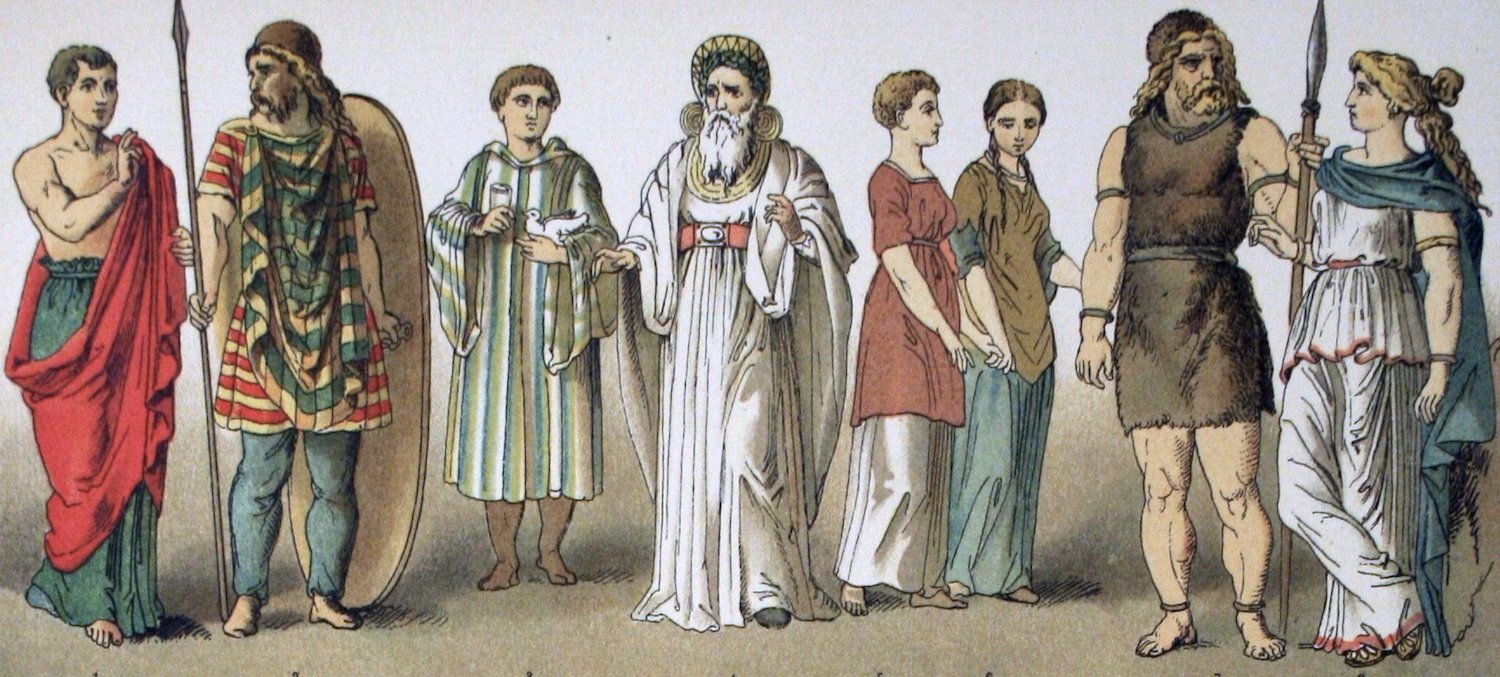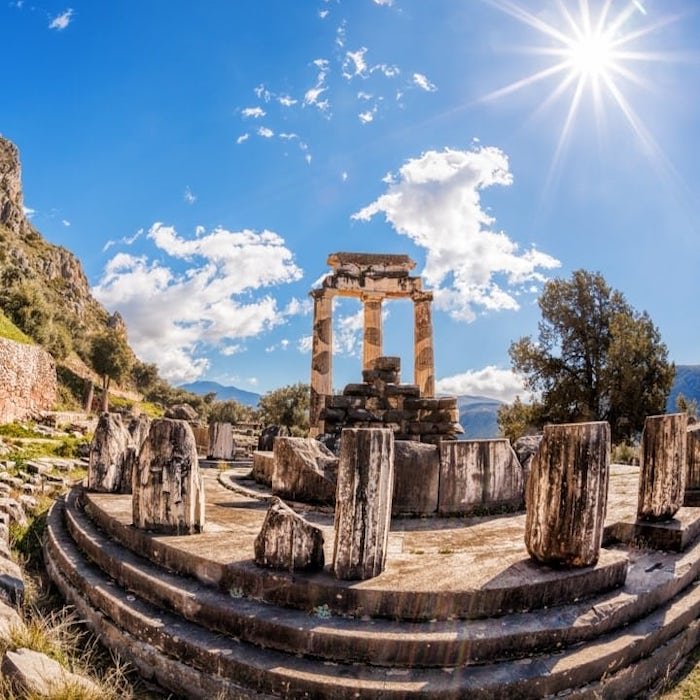For those who are curious about the landscape of the biblical world, the Rhine River may seem to be a stretch, a reach, a foul ball. The Rhine (Grk Ρήνος, Lat Rhenus) is an unlikely entry in a Bible dictionary or atlas. It is unrecognized in the biblical text. And yet, this waterway and those who peopled its banks were known in the New Testament world, more by reputation than experience.
A barbarian path along the Rhine. Köln, Germany.
Even Josephus (a Jewish contemporary of the Apostle Paul), demonstrates an awareness of it and them.
This awareness emerges in a tantalizing speech (reported or concocted) from the mouth of King Agrippa II (War 2.345-401). It is offered on the cusp of the first war between the Romans and the Jews.
To appreciate the speech, two things about Agrippa must be noted.
First, unlike the Rhine River, Agrippa does make a biblical appearance. He is another “Herod,” the last member of a ruling dynasty that played footsies with the Romans for more than a century (his great-grandfather was the villainous Herod “the Great.” of the Christmas story.). Agrippa’s own biblical spotlight rises in Acts 25 and 26. There, in the provincial capital of Caesarea, he hears the case of the Apostle Paul and quips “Do you think that in such a short time you can persuade me to be a Christian?”
This meeting likely occurred in the year AD 59 or 60.
The Apostle Paul before King Agrippa II, Proconsul Festus, and Julia Bernike. Painting by Vasily Surikov (1875). Image from https://www.biblicalarchaeology.org/wp-content/uploads/2019/03/paul-agrippa-berenice-festus.jpg (accessed 5/21/2022).
Beyond this, it is noted that Agrippa appears regularly as a Roman mouthpiece. He was raised and educated in the imperial court and received power to rule from both Claudius and Nero. Like Josephus, he was probably more popular (and comfortable) in Rome than in Jerusalem. This Romanization is key to understanding what comes out of Agrippa’s mouth (a perspective that closely aligns with that of Josephus. No surprise here.).
Agrippa’s speech is introduced in the War narrative at a key moment, less than a decade after the King met the Apostle. The year was AD 66. Exasperation over the Roman occupation of Judea had reached a breaking point. A full-scale rebellion was imminent.
In an attempt to douse this fire, Agrippa gathered the people of Jerusalem for a public address. As in the Acts 25-26 trial, Bernike accompanied him, but this time she perched safely on a rooftop to listen. This courtroom was far more volatile than the one in Caesarea.
The speech-maker.
The essence of Agrippa’s appeal to the Jerusalemites is that making war with the Romans is untimely, foolish, unjustified, and self-destructive. It is untimely because the moment to resist Rome was when they first arrived, not now that they are entrenched. It is foolish because the Jews do not have the pockets, manpower, or allies required to mount a successful resistance. It is unjustified because the atrocities that have brought both parties to the brink of war are the work of a select few (idiots), not the people as a whole. And finally, it is self-destructive because once put to motion, the Roman fist will be unrelenting.*
To underline these points Agrippa musters the lessons of history, lessons that he undoubtedly learned growing up in Rome. He had seen the scoreboard. He had heard the stories.
Many people groups have wisely submitted to Rome. There is no shame in this. Agrippa musters an impressive list (and all of his rhetorical powers) to convince his listeners.
Among them are the Germani, the “Germans.” And here is where Josephus demonstrates a first-century knowledge of the Rhine River and those who peopled its banks. Two mentions from Agrippa’s speech catch our eye.
Many people groups have submitted to Rome according to Agrippa. Among them are the “British, Gallic, German” folk. Image from Costumes of All Nations by A. Kretschmer and C. Rohrbach (1882).
In the first mention, the land of the Gauls is defined by its surrounding features. Their defenses are impressive: “on the east the Alps, on the north the river Rhine, on the south the chain of the Pyrenees, on the west the ocean” (War 2.372). Even with nature itself as ramparts, the Roman legions are unstoppable, he suggests.
The Rhine River surfaces again in a second mention. This time, focus is given to the folks on its east bank.
“Who among you has not learned, by hearsay, about the horde of Germani? No doubt you have often seen the strength and size of their bodies, since Romans have their captives everywhere. But these men, although they apportion among themselves a boundless land, and have aspirations bigger than their bodies, as well as the soul that holds death in contempt and tempers that are more violent than those of the wildest beasts, have the Rhenus (Rhine) as a boundary to their impulse. Being dominated by eight legions of Romans, those who have been conquered are slaves, while their nation as a whole is preserving itself by fleeing (War 2.376-377).**
Big, burly, bound, and beastly. These Germans made quite an impression.
(As an aside, it would be worth a tiny investigation to see how often the stature of the Germans is compared to that of the Romans. Thesis possibility? How about this: the nasty Roman attitude was born from a bad case of “little man syndrome.” I doubt you find that one in the literature.)
There is nothing that encourages barbarity like the Bundesliga, the top tier of the German football league system.
Agrippa’s appeal to the Jews clamoring for war? Stop this madness! If you don’t, Rome will incinerate “this most exceptionally beautiful homeland.”***
He then offers a counter-idea. Instead of fighting the Romans, confuse them. “There is nothing to check blows like submission, and the resignation of the wronged victim puts the wrongdoer to confusion”!
*I’m not really a NT guy, but I’m guessing this speech has been played in the context of Jesus’s “Olivet Discourse” (e.g. Matt 24-25). I don’t have time to chase this one down. Another day, maybe.
**This English translation of Josephus is drawn from the work of Steve Mason, Flavius Josephus: Translation and Commentary (Brill, 2008).
***Curiously, Agrippa’s speech at the opening of the Jewish War anticipates its end. Agrippa warns the Jews that to pursue this mad war means you will “execute your women and your children with your own hands” (2.395). Alert readers contemplate these sad words and foresee the spectacle of the mass suicide at Masada (7.389-401).
Reservations are now being received for our April 21-May 1, 2023 excursion to Greece. Bible Land Explorers will follow in Paul’s footsteps in the classical world, with stops at Thessaloniki, Amphipolis, Philippi, Neapoli (Kavala), Meteora, Delphi, Corinth, Mycenae, Epidaurus, and Sparta. Conclude this grand tour in Athens, the classical center of it all. Click here for the brochure. Early bird discounts apply. Direct all questions to BibleLandExplorer@gmail.com






